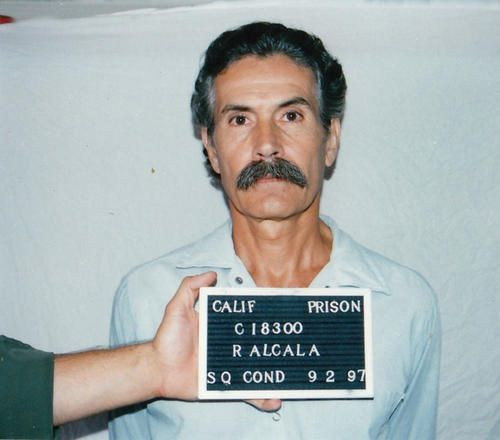Rodney Alcala The Dating Game Killer: A Psychological Profile

Most people would be familiar with the name Rodney Alcala, also known as "The Dating Game Killer," now sitting on death row in California.
Born Rodney James Alcala, he was sentenced to death in 2010 for serial murders. Though proof or confessions exist for seven murders, the exact kill-count is still unknown.
While these aspects may be well known to the public, what's lesser known are the psychological underpinnings that made the man — now 74 — a killer in the first place.
In an interview given to British magazine Pick Me Up!, Dr. Nicola Davis — a U.K.-based psychologist, researcher and writer, analyzed the aspects that could have led to Alcala becoming a serial killer.
Key takeaways from her analysis are given below:
A key incident from Rodney’s childhood was that he was abandoned by his father when he was just 11 years old. Being abandoned by one’s parent at such a young age could have a traumatic effect on a child — one that may last for decades. Such children often get the notion that they were abandoned because of some wrongdoing on their part.
It’s not unusual for such children to never completely trust anyone, inhibiting them from getting into a comfortable relation with another person — this could be the case even when they become adults.
As for Alcala, he was diagnosed with antisocial personality disorder in his adulthood — pointing to the possibility that the abandonment he suffered in childhood could have distanced him from people in general.
Being antisocial, it’s logical to assume that he would have been inclined to resist laws and social norms. Also, given he didn’t care much about other peoples' rights, remorse for his own crimes would have been too alien a concept for him.
Another key aspect of Rodney’s character was his affinity for multimedia — starting with photography.
It was with the aid of a camera that he trailed his victims — the vantage point from behind the viewfinder, affording him a safe place to observe others without inviting suspicion. Later, he would put photography to yet another use — to document the crimes he committed.
These photographs helped him lengthen the pleasure he derived from his crimes.
One trait that Rodney shared with multiple serial killers was the he liked to prolong the suffering of his victims for as long as possible. For this reason, he would strangle them to an inch of their life, only to let go, and start strangulating them again.
Also, he made almost all his victims pose in sexually suggestive postures.
Notwithstanding the sexual poses, Alcala’s victims included women, teenage boys and young girls. This suggests that for Alcala, the criterion was that the victim should be someone he could overpower.
But perhaps what’s most intriguing about Alcala for the public was that in 1978, he appeared on TV dating show "The Dating Game." This too has psychological underpinnings, said Davies.
Those with antisocial personality disorder like to manipulate others, and television offered a medium by which he could manipulate a mass audience into believing he was normal. Also, for Alcala, appearing on the show could have helped him to be someone whom he could never be, at least for a little while.
Though the woman in the show, Cheryl Bradshaw, chose him for a date, she later refused to go out with him, saying he was too “creepy.”
This rejection could have revived feelings interlinked to being abandoned as a child, thereby making him angry towards his fellow contestants. This could have even led to a rise in feelings of disregard he had for people in the first place.
One curious aspect which Davies’ analysis reveals is that many of the elements about the killer are things that many people experience — the abandonment by a parent, the fascination with media like photography, the wish to be on television, where you could present your best self.
But then, out of the many who go through such experiences, only Alcala turned to killing. Maybe, as Mark Twain said, “Everyone is a moon, and has a dark side which he never shows to anybody.”
Only, in Alcala’s case, the dark side became glaringly obvious.
© Copyright IBTimes 2024. All rights reserved.




















